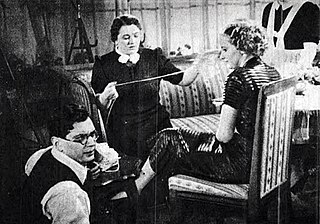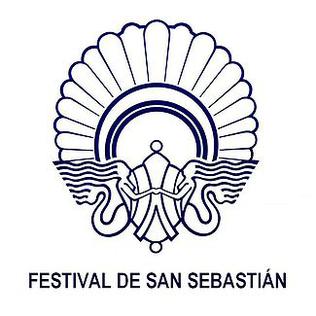A list of films produced in Spain in 1956 (see 1956 in film).
A list of films produced in Spain in 1956 (see 1956 in film).
| Title | Director | Cast | Genre | Notes | ||
|---|---|---|---|---|---|---|
| 1956 | ||||||
| The Adventures of Gil Blas | Ricardo Muñoz Suay | Georges Marchal, Barbara Laage, Susana Canales | Adventure | Co-production with France | ||
| Between Time and Eternity | Arthur Maria Rabenalt | Lilli Palmer, Willy Birgel, Carlos Thompson | Drama | Co-production with West Germany | ||
| Calle mayor | Juan Antonio Bardem | Betsy Blair, José Suárez, Manuel Alexandre | Drama | Venice Film Festival award | ||
| Mi tío Jacinto | Ladislao Vajda | Pablito Calvo, Antonio Vico | Drama | Entered into the 6th Berlin International Film Festival | ||
| El expreso de Andalucía | Francisco Rovira Beleta | Jorge Mistral, Marisa de Leza | Film Noir | Spanish Neorealism | ||
| Calabuch | Luis García Berlanga | Edmund Gwenn, Franco Fabrizi, Valentina Cortese, Manuel Alexandre | Comedy | Co-production with Italy. Venice Film Festival award | ||
| Afternoon of the Bulls | Ladislao Vajda | Entered into the 1956 Cannes Film Festival | ||||

Mario Fortino Alfonso Moreno Reyes, known by the stage name Cantinflas, was a Mexican comedian, actor, and filmmaker. He is considered to have been the most widely accomplished Mexican comedian and is celebrated throughout Latin America and in Spain as a popular icon. His humor, loaded with Mexican linguistic features of intonation, vocabulary, and syntax, is beloved in all the Spanish-speaking countries of Latin America and in Spain and has given rise to a range of expressions including cantinflear, cantinflada, cantinflesco, and cantinflero.

Around the World in 80 Days is a 1956 American epic adventure-comedy film starring David Niven, Cantinflas, Robert Newton and Shirley MacLaine, produced by the Michael Todd Company and released by United Artists.

Fernando Casado Arambillet, best known as Fernando Rey, was a Spanish film, theatre, and television actor, who worked in both Europe and the United States. A suave, international actor best known for his roles in the films of surrealist director Luis Buñuel and as the drug lord Alain Charnier in The French Connection (1971) and French Connection II (1975), he appeared in more than 150 films over half a century.

Alexander the Great is a CinemaScope and Technicolor 1956 epic historical drama film about the life of Macedonian general and king Alexander the Great written, produced and directed by Robert Rossen. Filmed in Spain, it was released by United Artists and stars Richard Burton as Alexander along with a large ensemble cast. Italian composer Mario Nascimbene contributed the film score.

Pedro Gregorio Armendáriz Hastings was a Mexican-American film actor who made films in both Mexico and the United States. With Dolores del Río and María Félix, he was one of the best-known Latin American movie stars of the 1940s and 1950s.

"Que Sera, Sera " is a song written by the team of Jay Livingston and Ray Evans that was first published in 1955. Doris Day introduced it in the Alfred Hitchcock film The Man Who Knew Too Much (1956), singing it as a cue to their onscreen kidnapped son. The three verses of the song progress through the life of the narrator—from childhood, through young adulthood and falling in love, to parenthood—and each asks "What will I be?" or "What lies ahead?" The chorus repeats the answer: "What will be, will be."

The art of motion-picture making within Spain or by Spanish filmmakers abroad is collectively known as Spanish Cinema.

Luis García-Berlanga MartíMML was a Spanish film director and screenwriter. Acclaimed as a pioneer of modern Spanish cinema, his films are marked by social satire and acerbic critiques of Spanish culture under the Francoist dictatorship.
The Golden Age of Mexican Cinema is a boom period in the history of Mexican cinema, which began in 1936 with the premiere of the film Allá en el Rancho Grande, and culminated in 1956.

Juan Antonio Bardem Muñoz was a Spanish film director and screenwriter, born in Madrid. He was a member of the Communist Party. Bardem was best known for Muerte de un ciclista (1955) which won the FIPRESCI Prize at the 1955 Cannes Film Festival, and El puente (1977) which won the Golden Prize at the 10th Moscow International Film Festival.

The Valladolid International Film Festival, popularly known as Seminci, is a film festival held annually in Valladolid, Spain. First held in 1956 as Semana de Cine Religioso de Valladolid, the Seminci is one of the longest-standing film festivals in Spain. It stands out in the area of films d'auteur and independent films.

Swashbuckler films are a subgenre of the action film genre, characterised by swordfighting and adventurous heroic characters, known as swashbucklers. While morality is typically clear-cut, heroes and villains alike often follow a code of honour. Some swashbuckler films have romantic elements, most frequently a damsel in distress. Both real and fictional historical events often feature prominently in the plot.

Ladislao Vajda was a Hungarian-Spanish film director who made films in Hungary, Spain, Portugal, the United Kingdom, Italy and West Germany.

The Golden Shell is the highest prize given to a competing film at the San Sebastián Film Festival. It was introduced in 1957. In 1953 and 1954, the highest prize had been called the Gran Premio. In 1955 and 1956 it was replaced by the Silver Shell. Six directors have won the Golden Shell twice: American director Francis Ford Coppola, Spanish director Manuel Gutiérrez Aragón, Mexican director Arturo Ripstein, Spanish director Imanol Uribe, Iranian director Bahman Ghobadi, and Spanish director Isaki Lacuesta.

The Sun Also Rises is a 1957 American drama film adaptation of the 1926 Ernest Hemingway novel of the same name directed by Henry King. The screenplay was written by Peter Viertel and it starred Tyrone Power, Ava Gardner, Mel Ferrer, and Errol Flynn. Much of it was filmed on location in France and Spain as well as Mexico in Cinemascope and color by Deluxe. A highlight of the film is the famous "running of the bulls" in Pamplona, Spain and two bullfights.
"In Heaven There Is No Beer" is a song about the existential pleasures of beer drinking. The title of the song states a reason for drinking beer while you are still alive. The song in German is "Im Himmel gibt's kein Bier", in Spanish, "En El Cielo No Hay Cerveza". It was originally composed as a movie score for the film Die Fischerin vom Bodensee, 1956, by Ernst Neubach and Ralph Maria Siegel. The English lyrics are credited to Art Walunas.
Blond Arrow is a 1956 Spanish film directed by Florián Rey and starring Alfredo Di Stéfano, Antonio Casal and Antonio Ozores. Di Stéfano, one of the stars of the Real Madrid side of the 1950s, appears as himself. The film's title refers to his nickname. It was made by Suevia Films, Spain's leading film studio of the era.
Events in the year 1956 in Spain.

Gloria Evangelina Elizondo López-Llera was a Mexican actress and singer from the Golden Age of Mexican cinema. She starred in movies, television and theater. She was an accomplished artist having studied at the National School of Painting and had a degree in theology. She wrote two books and recorded numerous albums. In 2014, she received a Premios Arlequín for her contributions to Mexican culture.